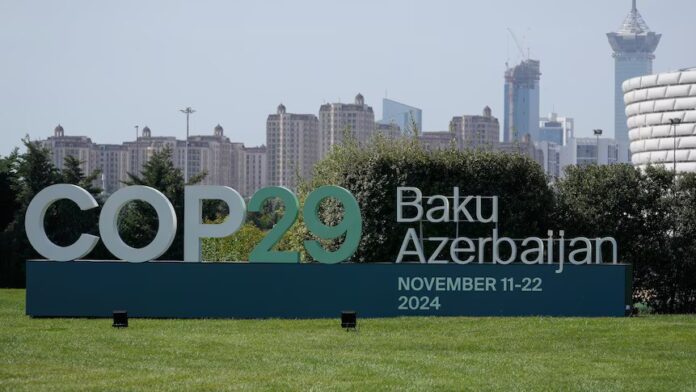BAKU, Azerbaijan (ChatnewsTV) — The United Kingdom and the United States have signed a landmark agreement at the COP29 climate summit in Baku to speed up the development of advanced nuclear technology. The deal aims to enhance energy security and boost efforts to decarbonize heavy industries worldwide.
On Monday, UK Energy Secretary Ed Miliband and US Deputy Secretary of Energy David Turk sealed the agreement, which commits both nations to pooling billions of dollars in nuclear research and development. The initiative will involve leading universities and nuclear innovators to push the deployment of next-generation nuclear technologies by 2030.
“Nuclear will play a vital role in our clean energy future,” said Miliband. “That is why we are working closely with our allies to unleash the potential of cutting-edge nuclear technology. Advanced nuclear technology will help decarbonize industry by providing low-carbon heat and power, supporting new jobs and investment here in the UK.”
The agreement focuses on the advancement of technologies such as advanced modular reactors (AMRs), which offer smaller, more efficient options compared to traditional reactors. These reactors can be mass-produced in factories, potentially reducing both costs and construction times. AMRs are seen as key to decarbonizing sectors like aviation, hydrogen, and steel production, where low-carbon heat and power are essential.
This move aligns with the broader international goal set at last year’s COP28 to triple global nuclear capacity by 2050, with 31 countries, including the UK and US, backing the expansion.
David Turk emphasized the global significance of the initiative. “By joining forces, we are not only bolstering our own energy security but also contributing to a cleaner and more sustainable world,” he said.
“The new generation of nuclear technology is a crucial component of a carbon-neutral future.”
The UK has been making strides in reviving its nuclear capabilities after decades of stagnation. The country is advancing its Great British Nuclear small modular reactor competition and the Sizewell C project while continuing to develop advanced reactors. These efforts are expected to create thousands of skilled jobs and enhance energy independence beyond 2030.
In a move to ensure secure and ethical collaboration, the newly formed forum for nuclear research, known as the Generation IV International Forum, will exclude Russia. This step is designed to maintain cooperation between countries that adhere to international safety standards. The forum’s membership will also include Canada, France, Japan, South Korea, South Africa, China, Euratom, Switzerland, and Australia, with the agreement set to take effect on March 1, 2025.
The UK’s leadership in this new alliance is seen as a critical component of the country’s strategy to reinforce its commitment to a low-carbon economy and to play a leading role in global energy security.




